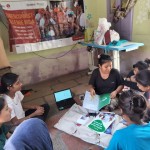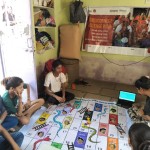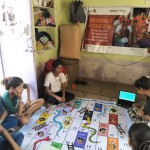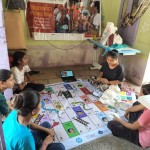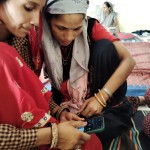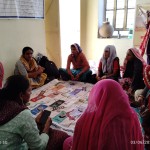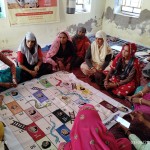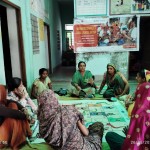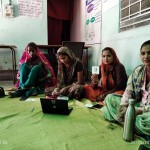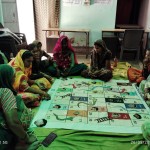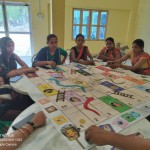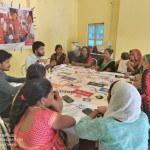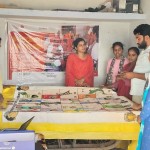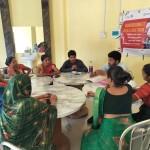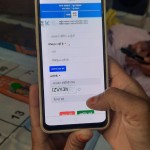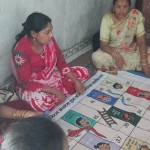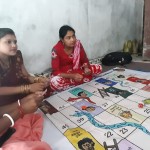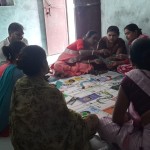Media Information Literacy Initiatives

The Humara MIL Kit for the Multiverse of Digital Fallacies is a part of Digital Empowerment Foundation’s Media and Information Literacy (MIL) initiatives to enable people to interpret and make informed judgments as users of information and media, as well as to become skillful creators and producers of information and media messages in their own right. An understanding of MIL would also help communities that are getting online to have a better understanding of misinformation, online trolling, stereotypes, prejudices and other online threats.
Knowledge Spheres
- Media and Information Literacy Skills
- Development of Critical Thinking
- Fact-checking and Verification
- Digital Hygiene and Cybersecurity Awareness
- Ethical Use of Digital Tools
- Community Engagement and Digital Empowerment
- Crisis Response and Education
- Collaboration with Local Institutions
- Adaptive Learning Modules
Knowledge Learnings
A toolkit on media information literacy with comprehensive modules, training and gamification activities on critical digital literacy and staying safe online, along with interactive elements like games, role-play opportunities, and a comic book with unique characters, can be a valuable resource for marginalised and vulnerable communities in the following ways:
- Accessible Learning: Ensure that the toolkit is accessible to diverse audiences. This makes information inclusive and accessible to a broader range of people.
- Empowerment: Such a toolkit empowers marginalised communities with essential digital literacy skills, enabling them to navigate the online world with confidence. This empowerment can help reduce their vulnerability to misinformation, online scams, cyberbullying and other online threats.
- Critical Thinking: The comprehensive modules on critical digital literacy encourage individuals to think critically about the information they encounter online. They can learn how to verify sources, detect biases, and for making informed decisions.
- Online Safety: Staying safe online is paramount, especially for vulnerable populations. The toolkit can provide practical guidance on setting strong passwords, recognising online threats and protecting personal information. It can also teach them how to report online harassment or abuse.
- Engagement through Gamification: Interactive games and role-play activities can make learning more engaging and enjoyable. This approach is particularly effective for marginalised communities who may find traditional educational methods less appealing or intimidating.
- Storytelling and Representation: The comic book with unique characters can facilitate storytelling and story sharing, allowing community members to share their experiences and perspectives. Representation in media is essential, and having relatable characters can help build a sense of belonging and empowerment.
- Community Building: The toolkit can be used in community workshops or training sessions, fostering a sense of solidarity and shared learning among community members. This can lead to the formation of support networks and a stronger community bond.
Activities Conducted
Media Information Literacy Workshops
Workshops on media information literacy (MIL) at the grassroots level in India are essential due to the profound impact online threats have on these communities. As more individuals gain digital access, they become susceptible to online dangers that can result in physical, mental, and tangible effects, deterring them from becoming informed digital citizens.
The ‘Humaara MIL Toolkit for the Multiverse of Digital Fallacies’ addresses these challenges through targeted workshops. These sessions educate participants on critical topics such as misinformation, cybercrime, fake news, online harassment, and cyberbullying. By equipping participants with knowledge and practical skills, the initiative empowers community members to recognize and respond to digital threats, fostering a safer online environment.
A recent training session targeted infopreneurs, aiming to enhance their digital literacy. Participants received essential resources, including guidance on using the cybercrime portal (www.cybercrime.gov.in) and the helpline number. Practical exercises familiarized them with navigating the portal and filing complaints, ensuring they could apply their knowledge in real-world scenarios.
Key subjects covered included identifying credible sources to combat misinformation and fake news, protecting personal information against cybercrimes like phishing and identity theft, and strategies for dealing with online harassment and cyberbullying.
By the end of the session, participants left with enhanced digital literacy and practical tools to protect themselves and their communities online. The ‘Humaara MIL Toolkit for the Multiverse of Digital Fallacies’ ensures grassroots communities are aware of digital threats and equipped to mitigate these risks effectively, promoting a safer and more inclusive digital environment.
Images from a training with community members in Rajasthan
Images from a training with community members in Dausa
Images from a training with community members in Uttar Pradesh
Images from a training with community members in Jharkhand
Watch a film on the importance of media information literacy at the grassroot level in India under the Safeguarding Rural India through Critical Digital Literacy with ASPEN and HP India:
Media Coverage on the Initiative
India’s War On Fake News: How Disinformation Became India’s #1 Threat | Fact Vs Fiction by CNA Insider
CNA covered Digital Empowerment Foundation as a case study on the importance of digital literacy and critical digital literacy in a documentary where they meet internet trolls, to understand the financial and ideological motives that compel them into becoming agents of misinformation. They also meet technologists, fact-checkers and grassroots digital activists who are fostering digital literacy and preventing people from falling prey to what commentators have called an “infodemic”.
India and Artificial Intelligence: How Deepfakes are Influencing the City by France 24
France 24 highlights the problem of misinformation fueled by AI in India’s capital, New Delhi, amidst the ongoing marathon voting process. Correspondents Khansa Juned and Léa Delfolie report that the unregulated use of AI and deepfakes has sparked controversies, as political parties increasingly incorporate AI into their campaigns. This burgeoning industry, now valued at $60 million, underscores the significant impact and challenges posed by advanced technologies in shaping public opinion and disseminating information.
India’s Elections Offer a Look at the Problem of Deepfakes by DW News
DW News highlights AI-driven misinformation in New Delhi, with generative AI creating videos of deceased politicians and deepfakes of Bollywood stars. This surge in misleading content, exacerbated by millions of AI-generated voice messages, underscores the urgent need for regulatory guidelines as legal actions and arrests increase.
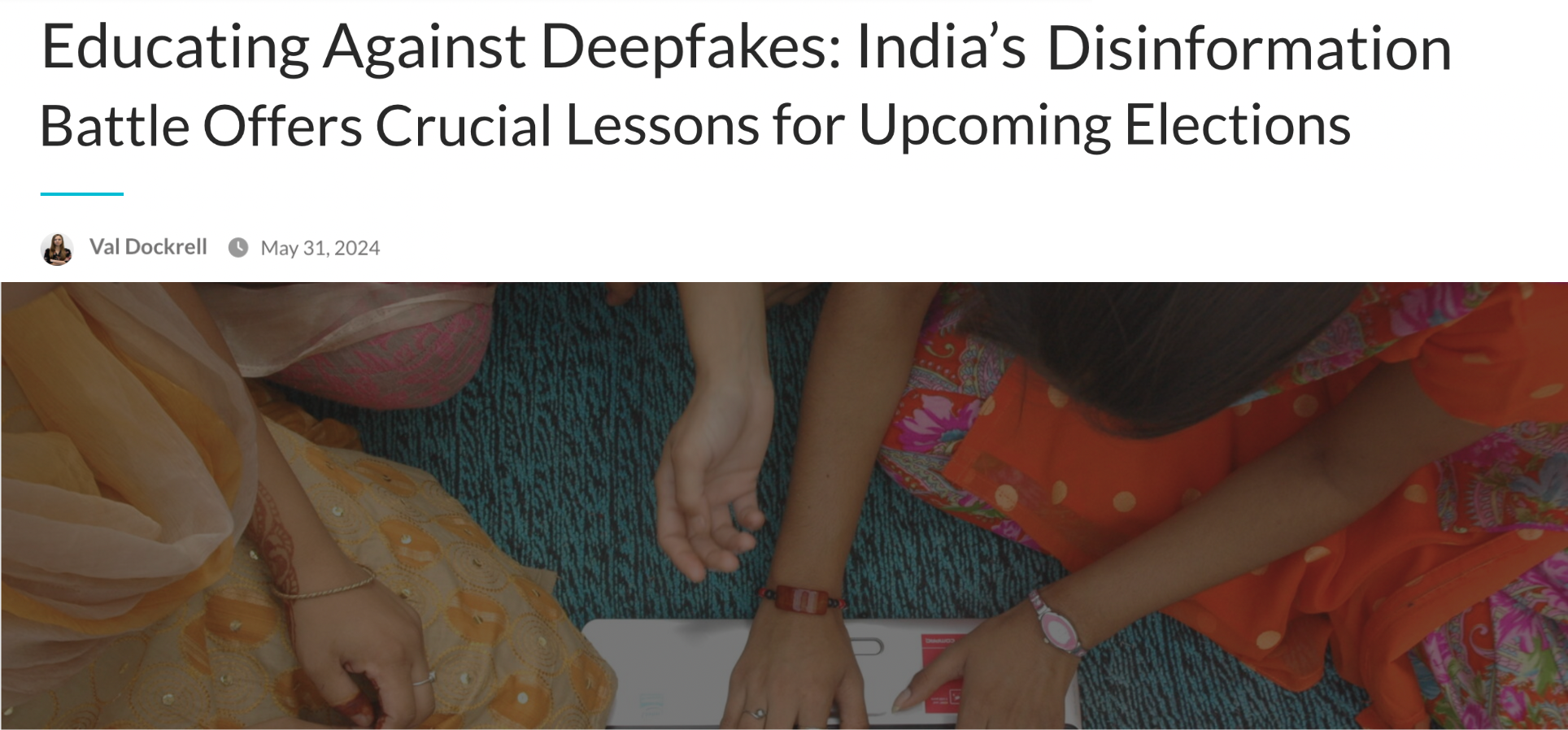
Read this article by National Security News on ‘Educating Against Deepfakes: India’s Disinformation Battle Offers Crucial Lessons’ that elucidates on India’s proactive battle against disinformation, focusing on empowering informed online users through the knowledge products developed to provide critical digital literacy at the grassroot level in India.
Impact
- 20,000 women have been enabled in critical digital literacy
- 6,000 students have been connected to comprehensive media and information literacy
- 2,000 information agents enabled with critical thinking and online safety and security tools

